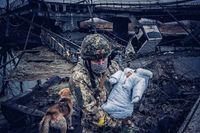Professional information & intelligence gathering
Counter-Terrorism
What is terrorism? Terrorist groups use violence and threats of violence to publicize their causes and as a means to achieve their goals. They often aim to influence or exert pressure on governments and government policies but reject democratic processes, or even democracy itself.
Counter-Espionage
The threat of espionage (spying) did not end with the collapse of Soviet communism in the early 1990s. Espionage against EU-country interests still continues and is potentially very damaging. Most governments rely on a range of information being gathered to guide their decisions. This is not the same as espionage.
Espionage is the process of obtaining information that is not normally publicly available, using human sources (agents) or technical means (like hacking into computer systems). lt may also involve seeking to influence decision-makers and opinion-formers to benefit the interests of a foreign power. The gathering of publicly available information is a routine activity of diplomatic staff, military attachés and trade delegations. They use open sources such as the media, conferences, diplomatic events and trade fairs, and through open contact with host government representatives. This enables them to monitor political, economic and military developments in their host country and brief their own governments. Foreign representatives thereby help their governments to shape their foreign, commercial and military policies. This type of work is not harmful to our national and international interests. In fact, it often helps us to build good relationships with other nations. Espionage focuses on gathering non-public information through covert means. Classified information is kept secret in the first place because its disclosure might harm national security, jeopardize the country's economic well-being or damage international relations. Its sensitivity makes it necessary for us to protect it but also makes it attractive to spies. If this information is obtained by those with no right to access it, serious damage can be caused. For instance, other countries are seeking technical details of weapons systems so that they can find ways of neutralizing our military advantages. Information on key services such as gas, oil and transport could enable terrorists to seriously damage these important economic targets. And the theft of classified technologies could enable foreign companies to copy them, threatening both national and international security and jobs.
Expert security advice and mentoring
Security Consultancy: Protecting your goals
Our security consultants provide international clients with professional risk-assessment programs and risk mitigating solutions. Very often security related issues are widespread and complex. Solutions need to cover all aspects of the situation to be effective. For complex situations, a holistic approach means the difference between symptom relief and efficiently solving the problem. Our security consultants provide international clients with professional risk-assessment programs, risk mitigating solutions and advice aimed at really getting your security and protection to the next level.
Consultants at your side
Our consultants are specialized in applying what we call the security chain. To provide you with an efficient and reliable security system, a consultant will be there for you, wherever it is needed around the world, to assess your situation, to advise you what measures to take and to set up the best protective plan. Our consultants work worldwide, 24/7, under a wide variety of circumstances providing our clients with efficient services. They will go through great lengths to be your trusted partner in security.
Bespoke solutions for extraordinary situations
In military tactics, extraction (also ex filtration or ex fil) is the process of removing personnel when it is considered imperative that they be immediately relocated out of a hostile environment and taken to an area either occupied or controlled by friendly personnel. Extraction is not always used during hostile environments, but can be used or referred to during training environments as well.
There are primarily two kinds of extraction:
Friendly: The subject involved is willing and is expected to cooperate with the personnel implementing the operation, when referring to enemy prisoners of war or being taken to captivity.
Hostile: The subject involved is unwilling and is being transferred by forceful coercion with the possibility/likelihood of engaging enemy personnel in any area either in and/or around the extraction zone.
In warfare, infiltration tactics involve small independent light infantry forces advancing into enemy rear areas, bypassing enemy frontline strong points, possibly isolating them for attack by follow-up troops with heavier weapons. Soldiers take the initiative to identify enemy weak points and choose their own routes, targets, moments and methods of attack; this requires a high degree of skill and training, and can be supplemented by special equipment and weaponry to give them more local combat options.
Solutions & Support In Emergency And Crisis Situations
Evacuations in times of disasters, if managed properly, can be effective in saving lives. However, lives saved by moving out of harm’s way are also regularly lost as a result of chaotic mass evacuations and dire living conditions in evacuation centres or temporary shelters. Overcrowding, lack of privacy and poor hygiene are just some of the commonly encountered characteristics of many evacuation centres and displacement camps that easily turn them into breeding grounds for infectious diseases.
The longer the time spent in evacuation centres, and the more protracted life in displacement thereafter, the greater the risk that people, especially (but not only) with pre-existing health conditions or weaker immune systems develop life-threatening complications. This has been well-known from responding to crises in diverse settings, and incidents of lives lost in evacuation are not uncommon even in high-income countries. Despite multiple lessons learned and subsequent guidelines issued to improve the environment in evacuation shelters, implementation of concrete measures in this regard has been lagging behind.
One of the underlying factors that prevented much-needed investments and change of the mind-set on this front has been the “common yet flawed assumption” that evacuations and disaster displacement are a short-lived phenomenon. In reality, there is a thin line between evacuation and displacement and many evacuations often end up marking the beginning of longer-term displacement.
STOP CHILD SEXUAL ABUSE
Child Pornography refers to sexual exploitation of a minor that is preserved in recorded form like images, videos, or any other computer-generated form. They are a form of sexual abuse that is against the law in most countries. All obscene images of children wearing less or no clothing or having sex are included under this heading. Pornography is obtained through molestation by making a child touch the genital area or vice versa.
It can also be drawn or created through a computer and that is known as simulated child pornography. The question of morality arises on the ground if the pornographic images decrease the happiness and measure of the sustainability of those who are affected. According to Devlin, the law should be used as a tool to regulate private immoral behavior if the behavior in question poses a threat to the moral fiber of society. If that is not regulated, a moral panic arises surrounded by all of the public opinions and socio-legal perspectives related to the issue.
The most innocent clues can sometimes help crack a case. The objects are all taken from the background of an image with sexually explicit material involving minors. For all images below, every other investigative avenue has already been examined. Therefore we are requesting your assistance in identifying the origin of some of these objects. We are convinced that more eyes will lead to more leads and will ultimately help to save these children.
We specifically want to trace their origin (location/country). You can help, This can be done anonymously.
The government wants to do everything in its power to prevent, identify and deal with child abuse and child sexual abuse. Professionals and the general public need to be alert to signs of child abuse and communicate this with each other if necessary. Sexual exploitation and sexual abuse are among the worst forms of violence against children.




